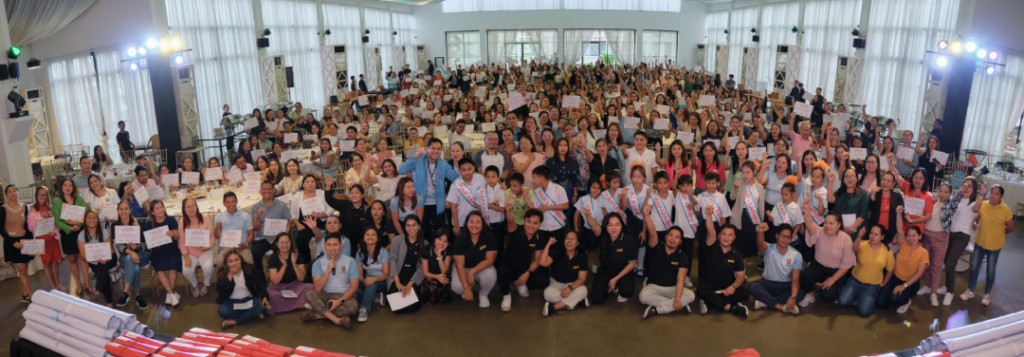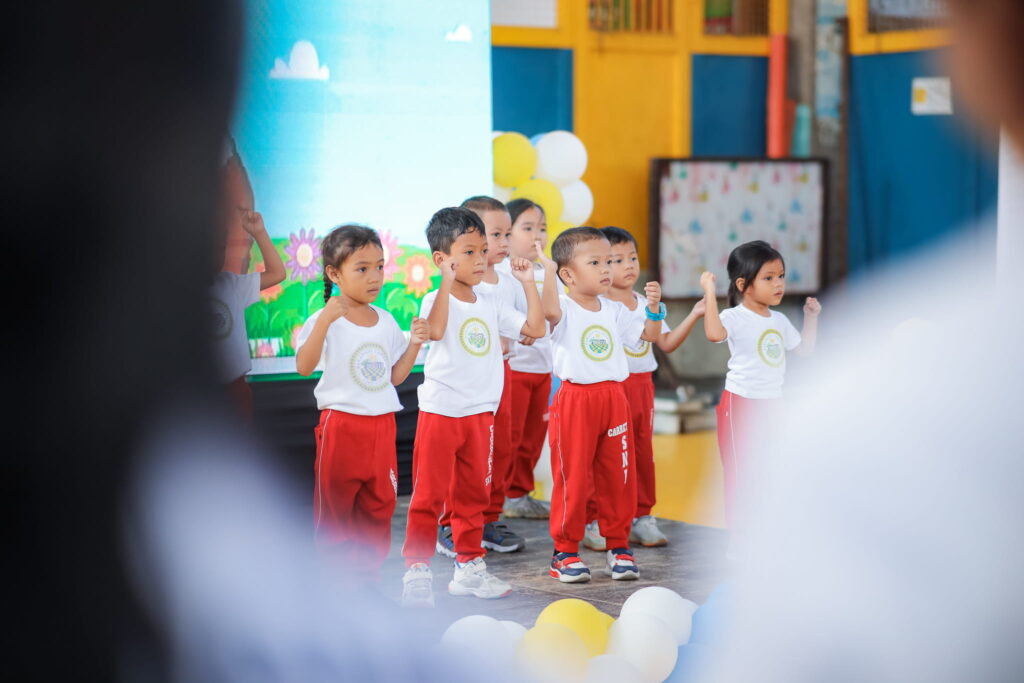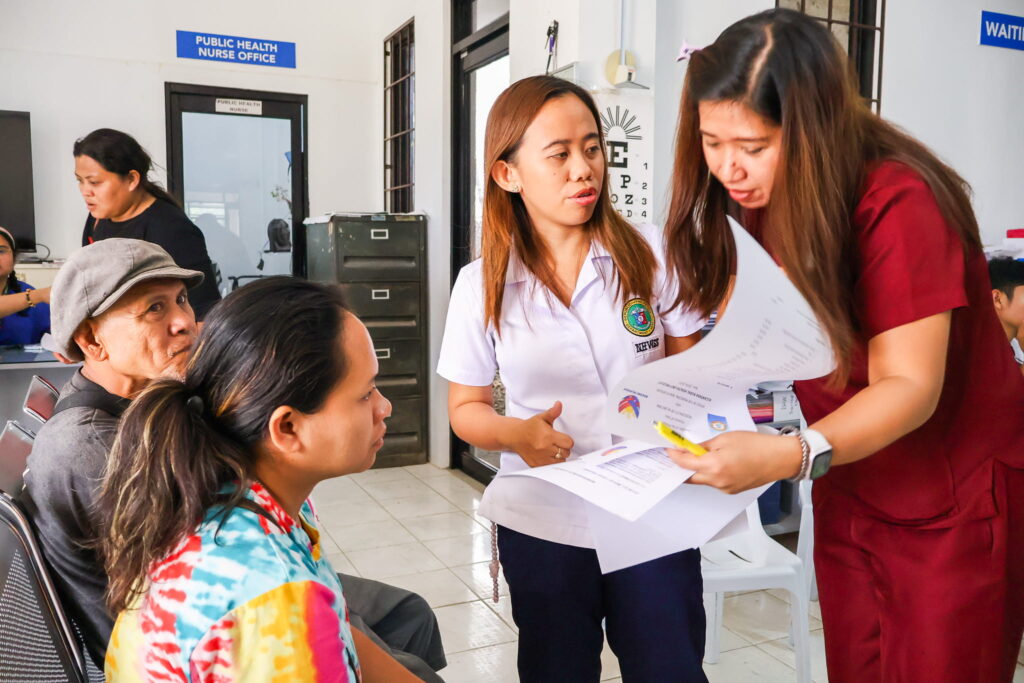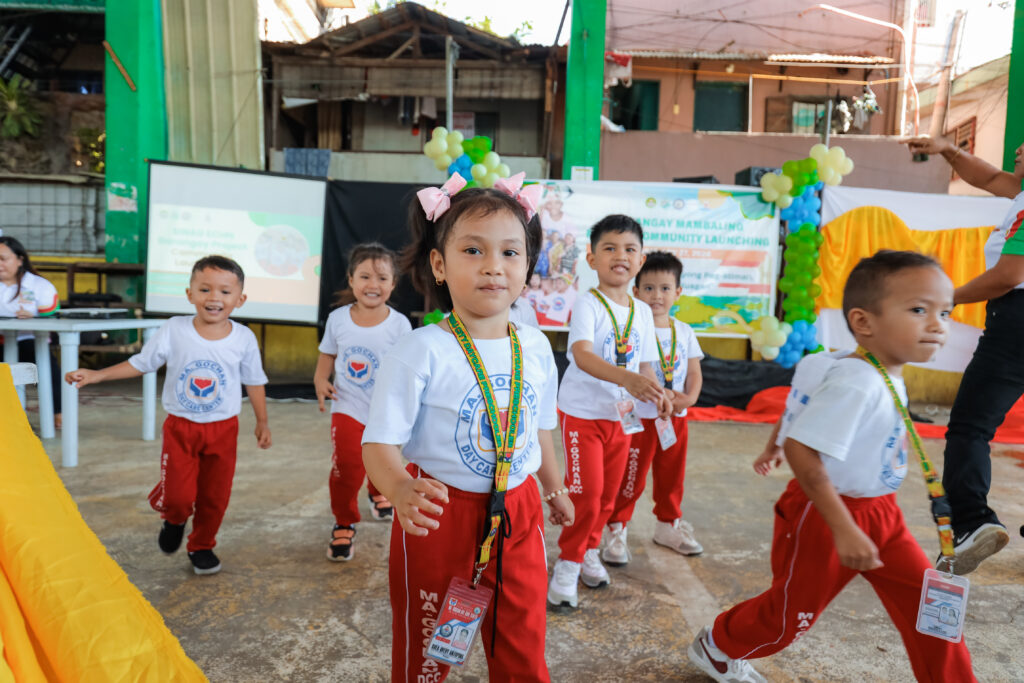
With triumphant smiles, over 2,000 learners in Cebu City are now equipped with enhanced reading and mathematics skills, ready to resume their respective grade levels. In support of ongoing initiatives to improve learning, the Ramon Aboitiz Foundation Inc., through its Education Development Unit (RAFI EDU) in partnership with AHA Learning Center, introduced the Kita ang Pagbag-o (KAP) Program to 69 schools within the jurisdiction of the Schools Division Office of Cebu City.
This holistic learning recovery initiative aimed to elevate learners, teachers, and parents alike. The KAP Program, which provided remediation sessions for learners, training for teachers, and a support group for parents, was designed to empower all participants to take a step higher. Acknowledging the importance of a nurturing learning environment, the program actively engaged both teachers and parents, ensuring that learners received the essential support they needed to enhance their literacy and numeracy skills.
Words to paragraphs, 1 digit to 2
One of the key features of the KAP Program was the Teaching at the Right Level (TARL) approach, which tailored instruction to meet each learner’s needs. From a baseline of knowing just words, 50% of the enrolled learners could read and comprehend a paragraph. Similarly, an increased percentage of students learned how to subtract and divide at least 2-digit numbers.
“[Mark], a Grade 4 student, had been retained in Grade 1 and could not read at all. He could only identify a few letters. As early as three weeks into TARL, along with his determination to learn, he was able to identify all the letters, read, and write words,” shared Teacher Marian, KAP Teacher Fellow at Busay Elementary School, noting the notable progress in her class.
“Teacher gyod diay ko”
Nothing beats the rewarding feeling of seeing development unfold in front of your eyes. For Teacher Cristine Bolo, KAP Teacher Fellow at Budlaan Elementary School, the program affirmed her role and purpose as a teacher to her students. Hope glimmered as the KAP sessions began to unfold.

“Kaning mga bataa, kung wala ni nato na identify sa KAP, naa gyoy tendency na dili ni sila maka move forward sa next grade level. Tungod sa KAP, gitagaan mi nila’g guidance unsaon pag identify sa bata, unsaon pagremedial sakto sa bata, unsaon pagsugod sa bata. Ayaw undangi. (…) Kung magtan-aw ka aning mga bataa no, mura gyod ug liso-on imong kasing kasing. Tungod ani, makalahos sila sa laing ang-ang sa ilang pageskwela, tungod sa KAP,” Cristine expressed.
“These children, if we hadn’t identified them through KAP, there is a real tendency that they wouldn’t be able to move forward to the next grade level. Because of KAP, we were given guidance on how to identify the children, how to provide proper remedial support for them, and how to get them started. (…) When you look at these children, it really touches your heart. Because of this, they can progress to the next level in their schooling, thanks to KAP,” Cristine expressed.
The KAP Program provided capacity-building support for KAP Fellow teachers, guiding them in identifying proper, effective, and engaging remediation modules. Recognizing possible teaching strategy gaps, teachers were also oriented and trained to effectively implement learning recovery programs.
Among its other key features, the Social Emotional Learning (SEL) component focused on emotional well-being alongside academic growth, ensuring that students were also uplifted in terms of confidence as they blended back into their respective grade levels.
Acknowledging a child’s greatest supporter and enabler, the Support Eskwela Club (SEC) provided a rich network of support for parents, helping them understand their role in continuing, practicing, and mirroring school activities at home.

The program’s 5-month journey culminated in a celebratory graduation event on May 18, 2024 at the Oakridge Pavilion, a milestone for participants; from beginners to achievers. This event also honored the invaluable support provided by teachers and parents, acknowledging their crucial role in the learners’ success.
While the educational sector encountered numerous challenges in recent years, including sudden shifts in physical, social, and emotional dynamics for both learners and educators, efforts to enhance comprehension in literacy and numeracy remains a priority in the Philippines. With the success of the program, RAFI remains steadfast in its mission of cultivating a healthy learning community where everyone takes part in supporting our learners to reach their dreams.


